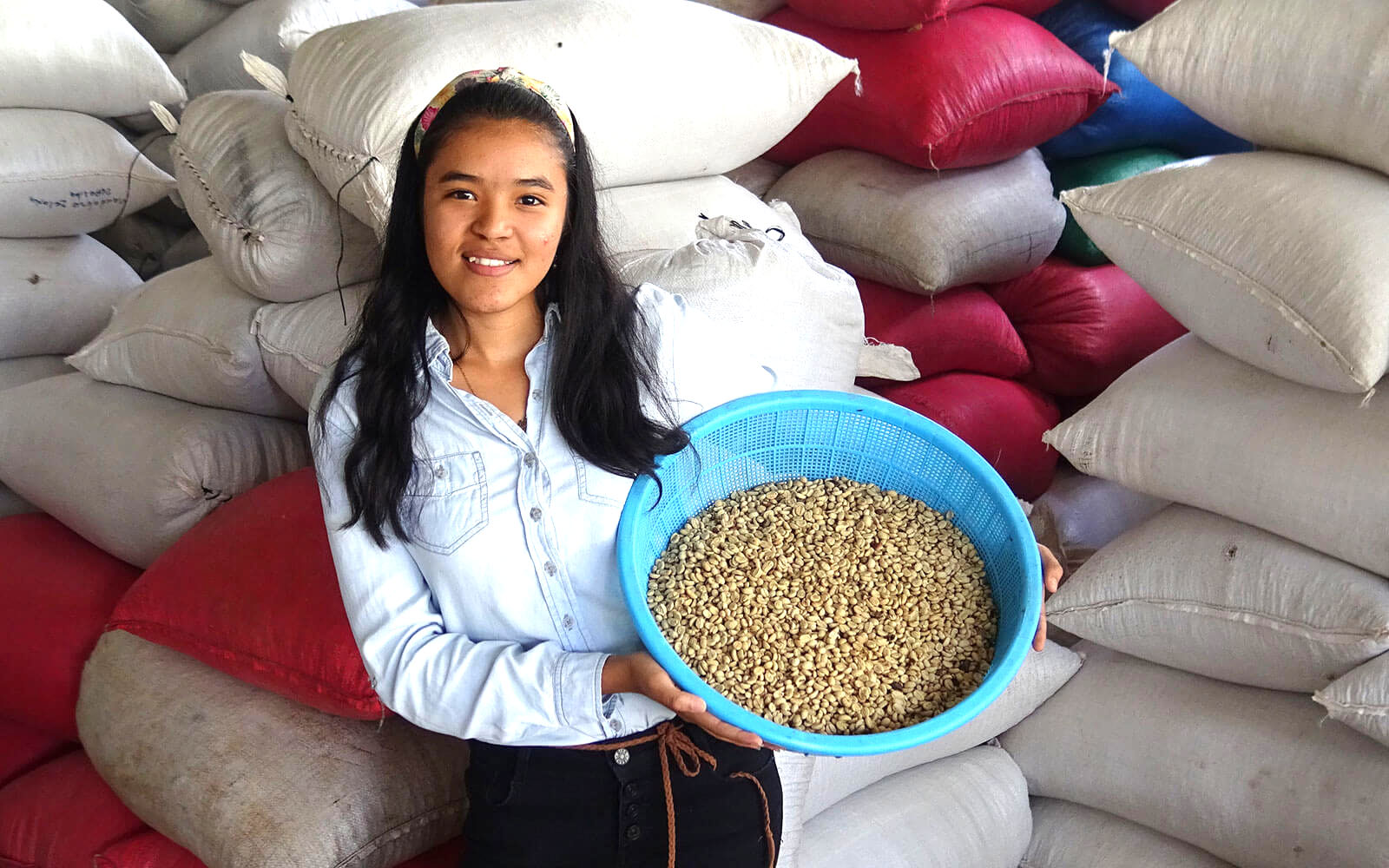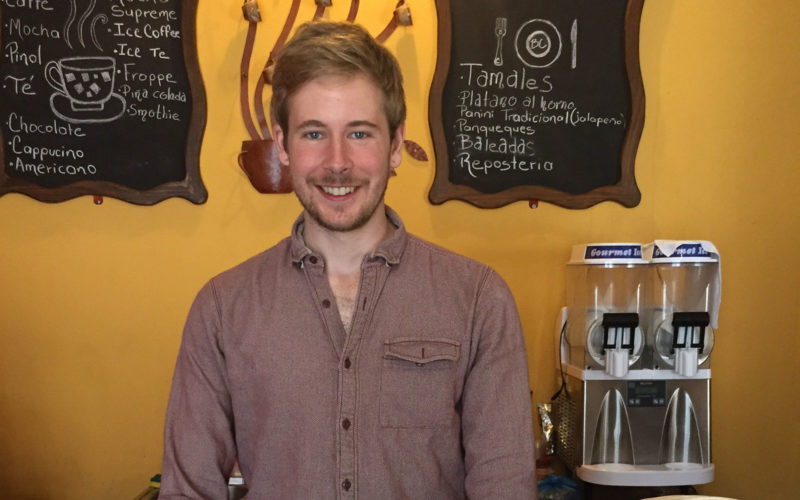Coffee – a giver of life
Story

Erika and Bayron Peña grew up on their family’s coffee farm in Corquín, Copán in Western Honduras. Their parents, Evelio and Valentina were forced to relocate their coffee finca (farm) in 2012 because of disease and bad weather that jeopardized their crops. To protect their business and family, they decided to sell everything and rebuild in the Santa Barbara region. The decision was difficult as the family had to move away from their loved ones and their community.
This year the Peña family’s crops suffered water shortages caused by drought and illegal logging in the nature reserve above their farms. Their well also ran dry on several occasions, making growing conditions less than optimal.
Cuso International, through volunteers like Frédéric Rivard in collaboration with the Société de Coopération pour Le Développment International (SOCODEVI) an organization in Quebec City whose goal is to improve the living conditions of families in developing countries by supporting cooperatives and helping them to consolidate as catalysts of inclusive, sustainable socio-economic development, is providing resources and education to improve knowledge and outcomes in long-term, sustainable agriculture programs like the Peña’s finca.
The coffee situation is difficult in the region. The finca’s are badly managed due to a lack of economic resources and most producers sell to “los coyotes” – intermediaries who buy coffee with cash at a low price. Cuso International programs educate and empower these individuals so that producers can retain a greater percentage of profit margins and provide better wages to their workers.
Coffee produced in Honduras through the Canada – Honduras Agro – Forestry Value Chain Project (CAHOVA) is supported by SOCODEVI alongside professional volunteers deployed by Cuso International. Frédéric Rivard is one of these volunteers. As a microfinance advisor for agricultural supply chains, Rivard is focused on coffee value chains that improve the lives of people in Honduras. “The goal is to tangibly and sustainably improve the living conditions of 4000 rural families in Honduras,” says Rivard. “By strengthening the local producers’ knowledge and understanding of coffee quality, strengthening relationships with various value chain suppliers, providing tools for effective market research and price discovery as well as actively recruiting and creating a database of North American roaster prospects, we provide the resources and tools to produce a quality product supply chain.”

Historically producers in these communities were forced to sell their coffee at local markets to intermediaries at lower prices without receiving any premiums. Many producers were losing money when accounting for their production costs. “Training, education and quite simply the commitment and resilience of the people are the tools creating success,” says Rivard. “Recently struck by the COVID-19 pandemic alongside two devastating hurricanes in a span of two weeks, the people of Honduras are the most resilient I have known.” “Despite losing their homes, crops and more, the people keep a positive outlook and faith in the face of adversity.”
When asked about the accomplishments of the past two years, Rivard speaks humbly, “By reducing the intermediaries of the coffee supply chain in Honduras, we have been able to increase local coffee producer’s income by 295 per cent,” says Rivard. “There is no doubt this advance is a catalyst for significant change and improved living conditions for producers. The most inspiring component of this project is the people. The success of this project would never have been possible without the strong trust, work ethic, and standards we have built together. This experience has been a giver of life to many. For me, I am most grateful for being able to give a voice to people who are often underserved and do not have many opportunities. I continue to be their voice every time I meet a coffee roaster in Montreal and across Canada.” When asked how we can extend support to these local coffee producers, Rivard responds simply. “Ask your local coffee shop where they purchase their coffee from. Fair Trade Coffee is a good place to start but if you truly want to make a difference ask if their coffee has a transparency report that shows the profit received by the producer.”
Volunteers like Rivard, are critical as Cuso International provides resources and training to support long-term sustainable agriculture programs that reduce poverty.
Along with Rivard, Cuso International volunteers Gerry and Sharleen Moodie worked alongside Rivard, and helped developed the program. The leadership of Cuso International partners SOCODEVI and the Honduran Coffee Alliance ensured the program’s success. “Without their efforts none of this would have been possible,” says Rivard.
You can support the development of agricultural supply chains that directly support sustainable communities with your donation today.